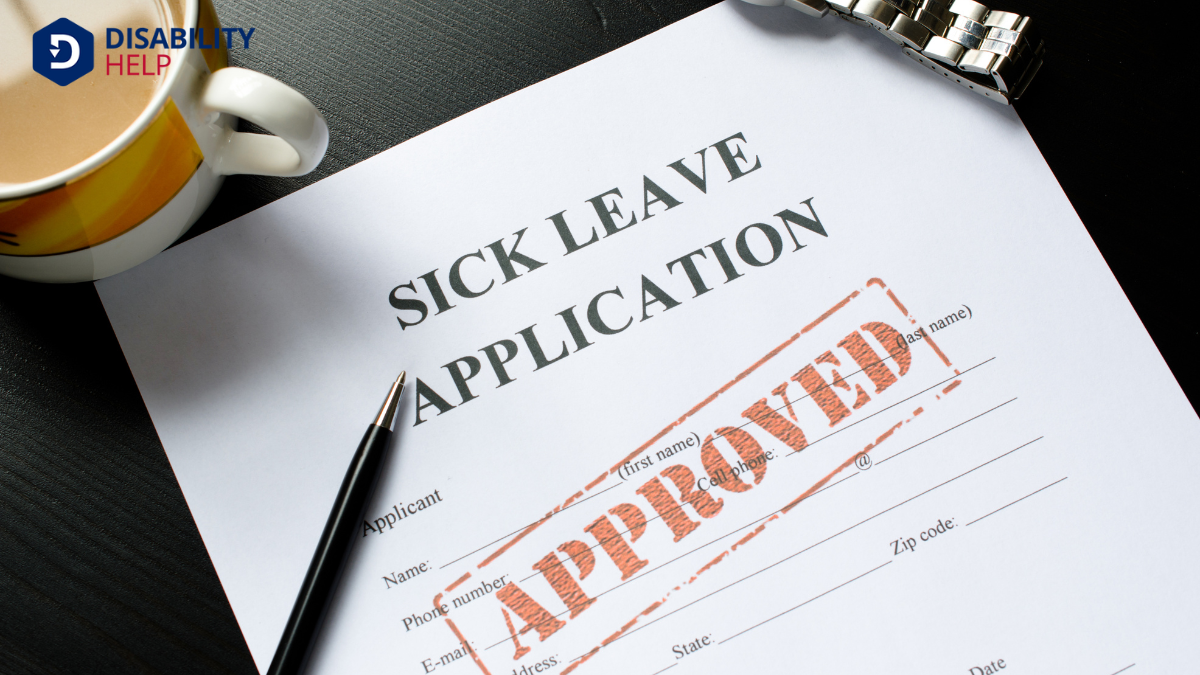When you leave a job, it's important to know what compensation you might receive. Severance packages can be a key component, often providing pay based on your length of service. You'll want to contemplate any unused vacation or sick leave, which can vary by state. Retirement benefits, stock options, and other incentives might also play a role. Curious about maximizing your exit package? There's more to uncover about these financial aspects.
Key Takeaways
- Severance packages may include pay based on service duration and possibly continued benefits, subject to negotiation.
- Unused vacation pay varies by state laws and company policies; review the employee handbook for specifics.
- Health insuranceA system for paying for medical services, often covering preventive, diagnostic, and treatment costs... continuation options include COBRA, spouse's plan, or marketplace exploration for coverage.
- Retirement benefits may involve options like rolling over to an IRA or transferring to a new plan.
- Outplacement services may be offered to assist in resume updates and interview preparation.
Severance Packages
When you leave a job, understanding severance packages is essential.
I've been in situations where knowing the details helped make a smooth change. A severance package is compensation an employer might offer when you’re laid off. It usually includes pay based on your length of service, sometimes with continued benefits.
It’s important to read the terms carefully. Each company’s policies vary, so don’t assume anything. If you’re unsure, ask HR for clarification and consult a legal professional if necessary.
Remember, you can negotiate. Consider how this package impacts your financial planning. It might offer peace of mind during your job search.
Knowing what to expect guarantees you’re equipped to handle the next steps confidently. Don't hesitate to seek advice.
Unused Vacation and Sick Leave Pay

When I left my last job, I learned that unused vacation and sick leave pay can vary greatly depending on state laws and company policies.
Some states require employers to pay out unused leave, while others leave it up to the company's discretion.
It's important to check both your employee handbook and local regulations to accurately calculate your final paycheck.
State Laws Impact Payout
Maneuvering the nuances of state laws can be intimidating, yet it’s essential to understand how they affect your payout for unused vacation and sick leave when you leave a job.
Each state has unique regulations. Some require employers to pay for unused vacation days, while others leave it to the company's discretion.
For instance, in California, employers must compensate for accrued vacation time, but not necessarily for sick leave.
In contrast, states like Florida and Texas don’t mandate payout for either, unless specified in a contract.
It’s vital to know your state’s laws, as they directly impact what you're entitled to upon departure.
I recommend checking your state’s labor department website or consulting a legal professional for accurate guidance tailored to your situation.
Company Policy Variations
Although traversing company policies can be complex, it’s important to understand how they govern the payout for unused vacation and sick leave when you leave a job. Each organization can have unique rules that affect your final compensation.
When I left my previous position, I learned that it’s vital to review your company's specific policy. Here are a few key points to keep in mind:
- Vacation pay: Some companies pay out unused vacation days, while others might not.
- Sick leave: Many businesses don’t compensate for unused sick days.
- Policy documentation: Always check your employee handbook or contract for details.
- HR confirmation: Contact HR to clarify any uncertainties you might have.
- State laws: These can influence how company policies are applied, adding another layer to reflect upon.
Understanding these variations can help manage expectations effectively.
Calculating Final Paycheck
Understanding how to calculate your final paycheck when leaving a job is essential, especially if you're expecting compensation for unused vacation or sick leave.
First, check your company's policy on vacation and sick leave payouts. Some companies will compensate for unused days, while others might not, depending on local laws. Contact HR for specifics.
To calculate, tally the total unused vacation days multiplied by your daily rate. For example, if you have five unused vacation days and earn $200 per day, you should receive $1,000.
Sick leave policies vary considerably, so verify if those days are payable. Make sure all calculations align with your final paycheck, and don’t hesitate to ask questions if something seems off.
Your diligence guarantees you receive what's due.
Retirement Benefits and Pension Plans
When you leave a job, it's essential to understand your retirement benefits and the options available for your pension plan.
I'll guide you through what you need to know about eligibility and how to make the most of your benefits.
Let's guarantee you're prepared to make informed decisions for your future.
Pension Plan Options
Steering through pension plan options when leaving a job can feel intimidating, but it’s crucial to make informed decisions to secure your financial future.
When you leave, you'll often face choices about what to do with your pension. Here are some options to contemplate:
- Leave it where it is: Sometimes, you can leave your pension with your former employer's plan.
- Roll it over to an IRA: This option often provides more control and investment choices.
- Transfer to a new employer’s plan: If you have a new job, you might transfer your pension to the new employer's plan.
- Cash it out: This might be tempting, but think about tax implications and penalties.
- Start taking distributions: If eligible, you could start receiving payments, but timing matters.
Thinking through these options carefully guarantees you make the best choice.
Retirement Benefits Eligibility
How can you determine if you're eligible for retirement benefits when leaving a job?
Start by reviewing your employer's retirement plan documents. They usually outline eligibility criteria, including vesting schedules and age or service requirements. If you’ve met the necessary years of service or age, you might be entitled to benefits.
Contact your HR department for clarity on your specific situation. They can provide details on whether you’re vested and what benefits await you.
Also, check if there are any forms or procedures you need to follow to claim your benefits. Understanding these aspects guarantees you don’t miss out on what you’ve earned.
Health Insurance Continuation Options
Steering the shift from one job to another often raises concerns about maintaining health insurance coverage.
When I left my last job, I'd to navigate my options carefully to guarantee continuous coverage.
Here are some pathways you might consider:
- COBRA: This federal program lets you keep your existing plan for a limited period, though you’ll pay the full premium.
- Spouse’s Plan: If your spouse has a plan, you might be eligible to join during a special enrollment period.
- Marketplace Plans: Explore options on the health insurance marketplace for potentially more affordable coverage.
- MedicaidA U.S. government program that provides health coverage to eligible low-income individuals, includin...: Depending on your income, you might qualify for Medicaid.
- Short-term Plans: These can fill gaps but usually offer limited coverage.
Each option has its pros and cons, so weigh them based on your needs.
Stock Options and Equity Compensation

While moving from one job to another, you might encounter stock options and equityFairness and justice in the way people are treated, especially in the allocation of resources and op... compensation, which can greatly impact your financial future.
When I left my previous job, understanding how to handle these benefits was essential. Stock options often have vesting schedules, meaning you must work for a certain period before they’re fully yours.
Check if you’re fully vested before leaving, as unvested options might be forfeited. If vested, you'll typically have a limited window to exercise them after departure.
Equity compensation, like restricted stock units (RSUs), may also be impacted. Review your company's policy on buyouts or holding periods.
Consult a financial advisor to assess the tax implications and decide the best course of action for your unique situation.
Bonuses and Incentives
Bonuses and incentives can play an integral role in your overall compensation package. When leaving a job, it's vital to understand how these components affect your final payout.
I've learned that many companies have specific policies regarding bonuses and incentives upon departure, so it’s significant to review your employment agreement and speak with HR for clarity.
Here are some key points to take into account:
- Eligibility: Check if you need to be employed on a specific date to receive bonuses.
- Pro-rated Bonuses: Some companies offer a partial bonus based on the time worked.
- Performance Metrics: Understand how performance goals impact your incentive eligibility.
- Discretionary Bonuses: These mightn't be guaranteed, so ask about your status.
- Non-compete Clauses: Confirm bonuses aren’t tied to restrictive post-employment conditions.
Being informed helps secure what you've earned.
Outplacement Services and Support
Steering the shift from one job to another can be challenging, but outplacement services and support can make a huge difference. When I left my last job, I discovered how beneficial these services can be.
Outplacement support helps you update your resume, sharpen your interview skills, and even offers career counselingProfessional guidance provided to individuals with disabilities to help them explore career options .... It’s like having a personal guide through the intimidating process of job hunting.
Employers often provide these services to ease the change and maintain a positive relationship. I found comfort knowing that I wasn’t facing this alteration alone.
The structured guidance boosted my confidence and made me feel more prepared. Remember, tapping into these resources can greatly impact your job search success, leading you to new opportunities with greater ease.
Conclusion
When leaving a job, it's essential to understand all the financial aspects to guarantee you're getting what you deserve. Don't forget to take into account severance packages, unused vacation and sick leave payouts, and the impact on your retirement benefits. Look into health insurance continuation options and make decisions about any stock options or equity you might have. Bonuses and incentives may also be on the table. Remember, understanding these elements can greatly enhance your financial security during this change.






